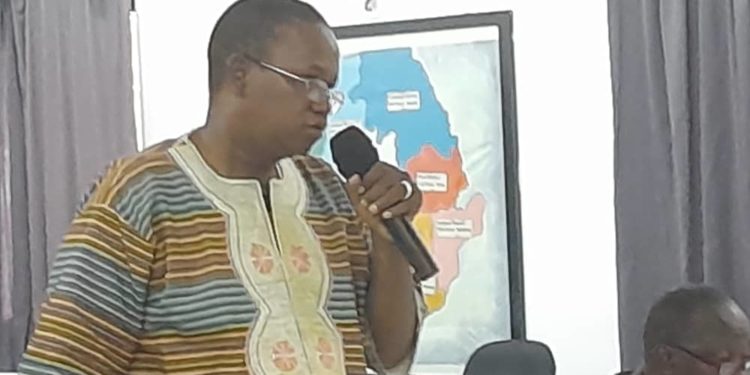Sierra Leone’s premier agricultural learning institution, Njala University, is planning to introduce a course on organic farming, as part of a larger effort to boost cash crop production in the country.
The university is collaborating with the German international development agency Welthungerhilfe (WHH) to develop an Organic Agriculture and Certification module, implement and incorporate it into the school’s curriculum.
The latest stage of discussions on this commenced on Thursday, May 5 at the Family Kingdom in Aberdeen, Freetown.
Officials say the course is being developed under the Agri-business Development from Organic Resources (ADORE) SLE 1070 Project, which is supported by the European Union through its Boosting Agriculture & Food Security initiative.
Officials of Njala and WHH in February last year signed an
MoU detailing the terms and conditions of the project whose overall goal is to stimulate the sustainable growth of the Sierra Leone Cocoa Agri-business sector, build an inclusive partnership between value chain stakeholders at all levels and promote an enabling policy environment for organic agriculture and value chain and development.
This meeting is one of three high-level stakeholders’ workshops planned for the development process of the curriculum.
George Muigai, Head of the ADORE project, says the collaboration with Njala was born out of a desire to fix a lack of expertise in organic agriculture in Sierra Leone. He says at the meeting that the project was designed to build technical expertise through training at Njala’s School of Agriculture and Food Sciences.
Mr Muigai notes that the project is implemented against the challenges of climate change, fair trade, and high demands for the targeted cash crops, notably cocoa, in the global market.
Initially, the course will be at certificate level. Muigai says the long-term plan is to scale up the programme to degree level.
NU, one of about half a dozen public universities in Sierra Leone, is an authority in science and research in the country.
First established in 1964, it’s considered as the Agricultural University of Sierra Leone, with the School of Agriculture as its main entity.
But over the years the institution appeared to have lost its grip on this sector. Its current leadership tasked itself to transform it back to its former days, when it played a crucial role in Sierra Leone’s effort for food self-sufficiency through research.
The agriculture sector employs about two-thirds of Sierra Leone’s labor force and, according to World Bank data, it accounts for more than 60 percent of GDP.
Sierra Leone is known to be endowed with a favorable agricultural environment comprising vast arable land, abundant rainfall, a temperate climate, and several water bodies with an irrigation potential that experts say could support the production of enough food to meet local consumption and for export.
But lack of funding and mismanagement, among other factors, have connived to stifle any progress in the sector.
Organic Agriculture is a form of farming that relies on ecological processes, biodiversity and cycles adapted to local conditions to boost production, rather than the use of synthetic inputs, which tend to have adverse effects on the environment.
Common practices employed in organic farming include crop rotation and biological control of pests and diseases. They also include growing cover crops and using animal and green manures as means of fertilizing the soil.
Experts say these practices contribute in sustaining the health of the soil, ecosystem and people.
Professor Alieu Mohamed Bah, Dean School the of Agriculture at Njala, says at the Family Kingdom meeting that Organic Agriculture was already practiced by default in the country, noting that their new approach is being designed against the challenges of erratic climatic conditions and prevalence of poor quality fertilizers, which he says was responsible for many cancer-related problems in the population.
Professor Bah also says that Njala has dedicated a lot of research in the area, noting that now is the time for training and rolling out of expertise and transferring of knowledge to farmers in line with the cardinal mandate of the university.
The discussion which ends on Friday brings together representatives of Chiefdom Authorities, District Councils, and the ministries of Agriculture and Trade and Industry, as well as agencies like the Sierra Leone Export Promotion Agency, Produce Monitoring Board, and Sierra Leone Standards Bureau.
The organizers say the participants will brainstorm on the inherent gaps in the sector and develop contents for the proposed course which is expected to take off in the 2022/2023 academic year.






















